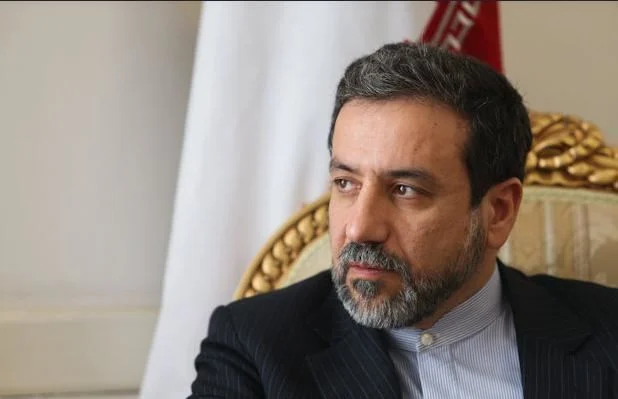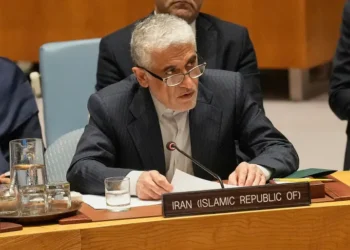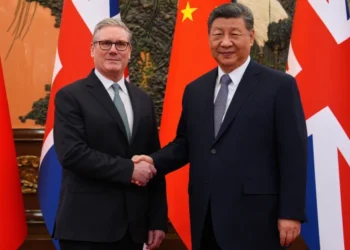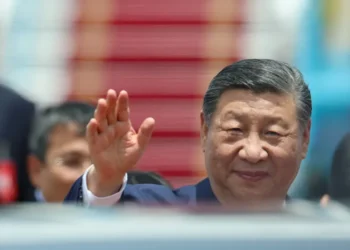Iranian Foreign Minister, Abbas Araghchi has asserted that there is “no possibility of direct talks” between Tehran and Washington on nuclear issues as long as the Trump administration continues to apply its “maximum pressure” strategy against Iran.
Speaking during a joint news conference alongside his Russian counterpart Sergey Lavrov, Araghchi said, “Iran’s position regarding nuclear talks is clear and we will not negotiate under pressure and sanctions.”
Lavrov arrived in Tehran on Tuesday, February 25, 2025, holding a private meeting with Araghchi, followed by an official delegation meeting and a joint press conference
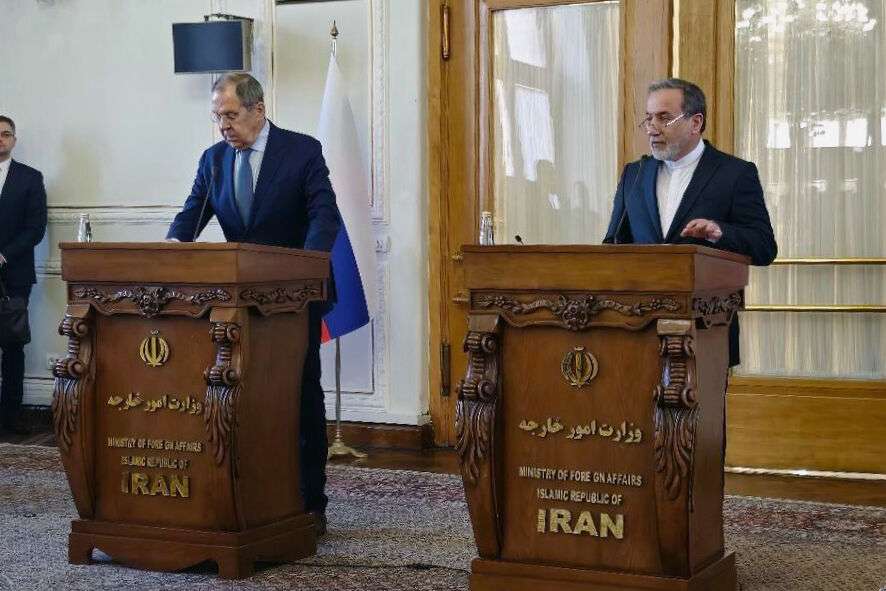
The nuclear issue was a key focus of the discussions.
Araghchi revealed that Iran had updated Russia on its recent talks with three European countries in Geneva, stressing coordination with Moscow and Beijing.
US President Donald Trump has urged Iran to engage in negotiations on nuclear and non-nuclear issues to avoid military conflict while simultaneously reinstating his “maximum pressure” campaign.
This policy, which includes severe economic sanctions, was initiated after Trump withdrew from the 2015 nuclear deal with the six world powers, prompting Iran to scale back its commitments under the deal.
The Republican President has picked up where his first term in the White House left off when it comes to his “maximum pressure” strategy against Iran.
Trump has promoted the pressure campaign as a way to ensure Iran does not pursue a nuclear weapon and said he wants to push Iran’s oil exports “to zero.”
His administration imposed its first sanctions against Iran earlier this month, targeting what it described as the country’s “oil network.”
During his first term, Trump unilaterally withdrew from a multilateral pact that saw Iran curb its nuclear programme in exchange for sanctions relief.
Many experts criticised that decision and questioned the “maximum pressure” strategy overall, saying diplomacy is a better way to promote Iranian nuclear compliance.
At the press conference, Araghchi described the talks with Lavrov as “detailed, good, and constructive,” covering a wide range of topics.
He announced that the joint economic commission of the two countries would convene in April, signalling a continued focus on strengthening economic ties.
Lavrov echoed this sentiment, stating that Russia remains committed to enhancing trade exchanges with Iran. “We have an extraordinary level of political dialogue with Iran,” Lavrov said, highlighting the dynamism in bilateral trade relations.
During the same press conference, Araghchi reiterated Iran’s continued support for the Axis of Resistance. “We believe that resistance groups are fighting for a just and righteous cause, and their struggle is supported by Iran in whatever form they choose,” he said.
Unilateral Sanctions Criticized
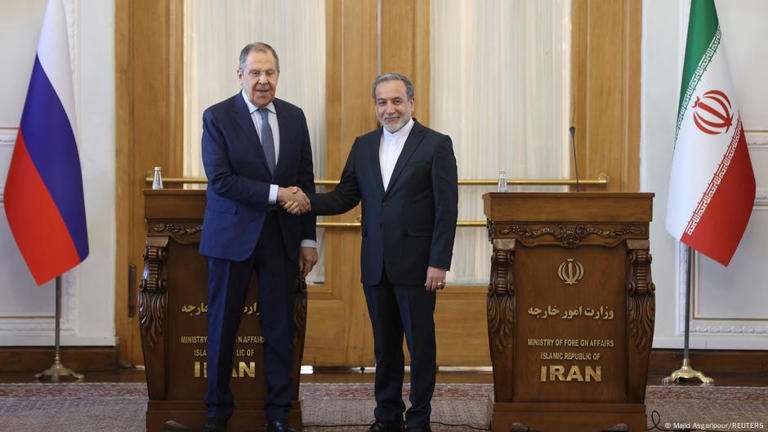
According to Lavrov, the two diplomats underscored the unacceptability of unilateral sanctions and considered targeted measures to mitigate their adverse effects on the economies of both nations.
The Russian Minister also announced that Moscow anticipates the free trade agreement between the Eurasian Economic Union (EEU) and Iran will come into force soon, predicting it will significantly boost trade turnover.
Lavrov confirmed discussions on the nuclear issue, advocating for diplomatic solutions over force or threats. “Moscow believes that the capacity for diplomacy still exists and should be used appropriately,” he said, stressing that the crisis was not created by Iran.
Analysts speculate that Lavrov’s visit to Tehran could be part of a broader effort to mediate between Iran and the US, with Russia potentially urging Iran to make concessions on its nuclear programme and regional policies.
Reza Taghizadeh, an Iranian political activist based in Glasgow, said on X that Lavrov’s goal in Tehran is to persuade the Islamic Republic to surrender its nuclear programme and shut down the Axis of Resistance in exchange for avoiding an Israeli military attack and cutting off oil exports. “Lavrov has taken Trump’s message with him and is the executor of the US President’s carrot-and-stick policy,” Taghizadeh added.
READ ALSO: Foreign Ministry Cautions Embassies Against Inhumane Visa Application Conditions

